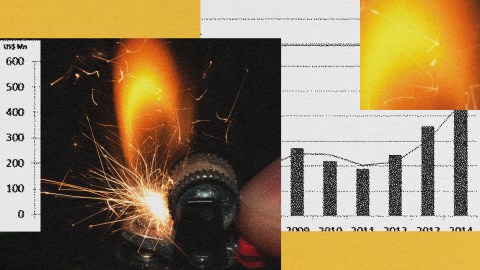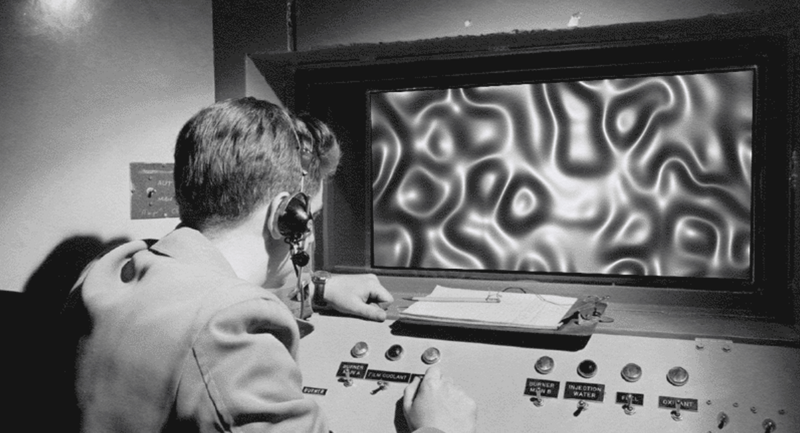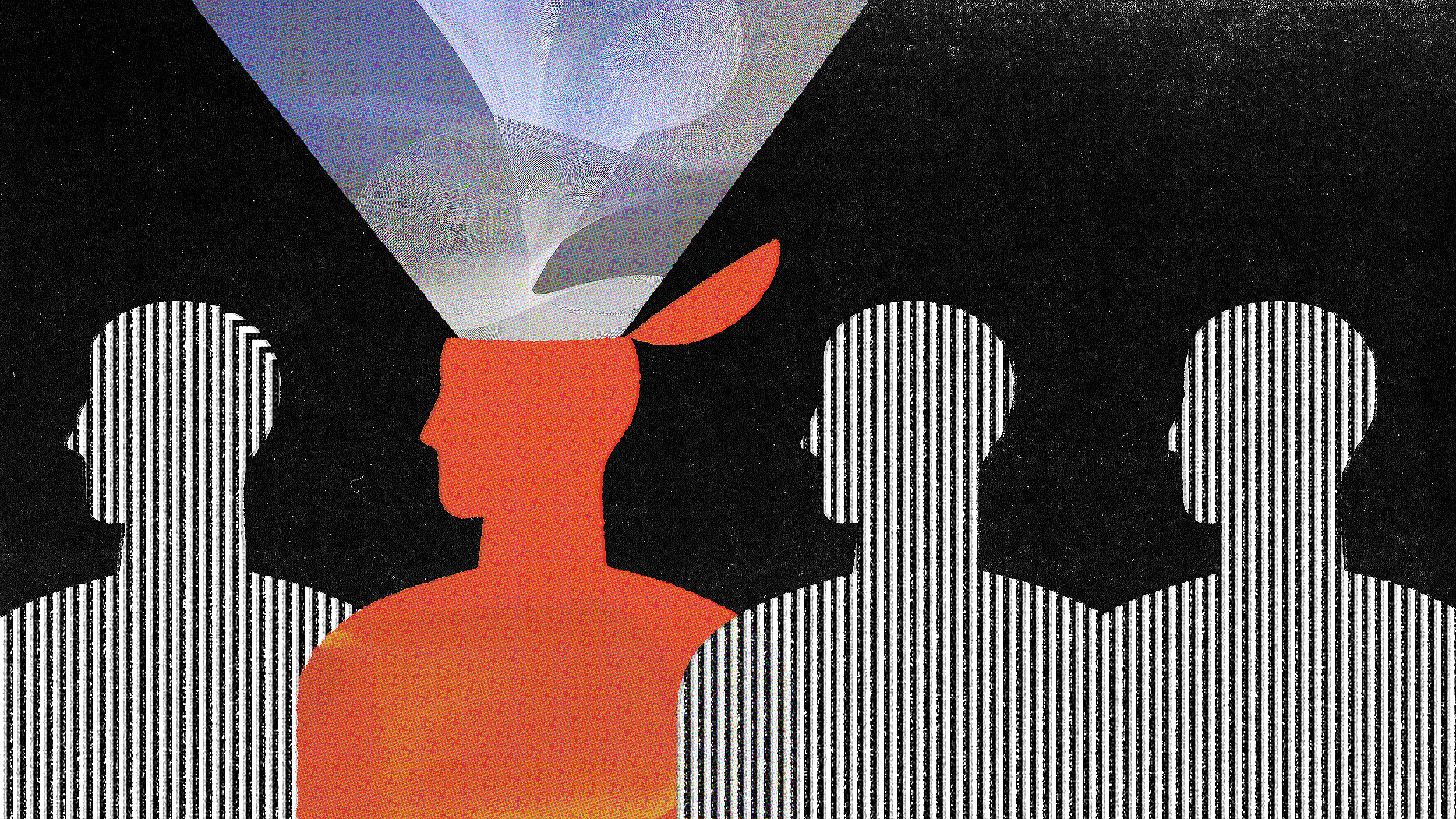How leaders can spark and maintain a disruptive fire

- Fire is a useful analogy for disruptive leadership.
- The greatest disruptors are relentless in their pursuit of “purposeful excellence.”
- Those who build enduring companies disrupt from the inside continually.
What does fire have to do with disruptive leadership? For starters, it’s a great analogy. Fire is hot. It burns. It’s uncompromising. There are no half-hearted measures. It challenges the status quo, for good or bad. The same is true for disruptive leaders.
Those who are great build fires constrained by purpose and values. Compare that with those that lead a flash fire or wildfire. They are often lauded for a period but ultimately leave a trail of devastation and destruction; so, if you are in the business of challenging the status quo and seeking to make a difference, it will be helpful to understand how to start, grow and maintain fires in order to leave an enduring legacy. A legacy that is judged through the lens of time. For me, great leaders and the organizations they build benefit people and/or the planet.
Heat: Purpose in action
Steve Jobs was relentless in his pursuit of purposeful excellence, and his every day actions generated heat wherever he went. Love him or hate him, he was on a mission. He wasn’t born successful, And his success didn’t come overnight. One thing was for sure: he would die trying.
The same is true of any great leader. The greater the difference you seek, the more heat you will need. It’s why the pursuit of money or status is not enough. To last the test of time, it is critical that you pursue something you care deeply about.

Once you’ve started your fire, how do you turn up the heat? Though a singular, radical, uncompromising focus on action. It’s energy over time. The greatest disruptors disrupt regardless of personal cost. They don’t take the easy path. They make difficult decisions, prioritizing the difference they seek. They often succeed, not because they are the strongest or best, but because they are the most driven and resilient.
Fuel: People and cash
As the saying goes, ‘like attracts like.’ As you set about your purpose, you will start to attract the necessary resources to your cause. It will likely be slower than you’d like, yet with focus, perseverance and resilience, your fuel will grow. Wonderfully talented employees willingly give their energy and time in a mutually fulfilling pursuit of difference. It’s why hiring the best matters so much. What’s more, you attract cash in the form of investments and customer orders.
But a word of warning. Never let a lack of cash stop you from pursuing the difference you want to make. Being entrepreneurial means you are able to build something from nothing.
I remember when the CEO of a manufacturing company asked me for advice during the pandemic. Two-thirds of the value of the business had been wiped, requiring them to raise billions in cash. “We need to transition our whole business but don’t have the cash,” he said. I reminded him that he had a stellar brand, a best-in-class supply chain, and significant R&D resources. A new CEO has since started and has brought new heat. The share price is bouncing. There’s always a way.
But remember, the quality of your leadership is key. If you burn with too much heat, you burn through people and cash. Too little heat, you have an unmotivated team and cash burn.
Oxygen: Markets and customers
Finally, we come to those you want to impact positively. Your market, customers or community. With skill, you’re able to spot opportunities where others don’t. You’re able to take advantage of changing winds, communicating your purpose through everything you do. Get it right, and you bring much-needed oxygen to your fire.
Being in the right place at the right time with the right product can be like being on drugs. The flow of oxygen massively increases the fire’s intensity. It’s one of the most exciting stages of a company. I hope you’re there right now.
But beware of changing headwinds. In a moment, a new disruptive entrant can steal your air. Threats such as wars, pandemics or regulatory changes can cut off your supply of oxygen. Are you actively watching for and managing risk?
Combining the elements for disruption
A fire needs all three elements. To grow, you need more of each. To stop a fire in its tracks, simply remove any one of the heat, fuel or oxygen components. Successful disruption relies on your ability to bring the right amount of heat, engage your employees, utilize available resources wisely, to take advantage of and protect yourself against changing market conditions.
A company is nothing without the people. Which is why the quality of leadership — influencing others to achieve an outcome — is so critical. Gallup states that only 20% of employees believe their managers have a clear vision/purpose, and only 15% are engaged. The number one reason for disengagement? Their relationship with their manager. As a result, an estimated $7 trillion is lost annually in productivity. Imagine driving your car with less than 15% of its power. It’s criminal and demonstrates why leadership development is a must. If we wonder why our fires are stuttering, the first place to look is in the mirror. Are we clearly communicating our purpose every day? Are we burning with the right amount of heat to ensure we remain ruthless in our pursuit? And are we creating environments for our employees to thrive, giving their all for mutual fulfillment?
Protecting your legacy
Those who build enduring companies have learnt to disrupt from the inside continually. But disruption requires moving away from safety-seeking behaviors in order to take (calculated) risks. But it’s difficult, as a sizable company becomes the new status quo. To successfully self-disrupt, it’s important to move on from level 1 thinking (‘Are we getting it right?’) and instead focus on the more difficult level 2 and 3 thinking (‘Are we doing the right thing?’ and ‘How do we decide what’s right?’). These questions are hard, and require energy from outside of our own echo chamber (i.e. we need data/people from diverse perspectives). They also require time to think. In the midst of it all, we must protect our greatest personal resources — energy and time. Burnout means the energy to act is gone. And without heat, the fire cools rapidly and dies.
Life is short. What greater motivation do we need to spend our energy and time on what really matters? As we pursue the difference we seek, we generate heat. We attract fuel in the form of great people, cash, and oxygen as customers. With purposeful skill, we realize the importance of self-development to ensure that what we build is positive rather than destructive. We constantly refine our approach to ensure we remain relevant to today’s needs.
So, what do you want your legacy to be?





